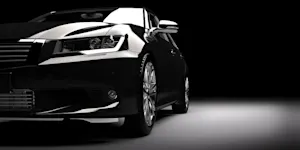What Makes This Word Tick
The word "dirigible" might sound whimsical, but it refers to something quite grand. It’s an adjective used to describe something capable of being steered or directed, most famously associated with airships. Imagine a giant, floating vessel gracefully maneuvering through the sky — that’s the charm of dirigible!
If Dirigible Were a Person…
Dirigible would be the aviator in a vintage leather jacket, sporting goggles and a confident smile. A pioneer at heart, always ready to chart a new course and glide into adventure, yet perfectly balanced between innovation and elegance.
How This Word Has Changed Over Time
The term "dirigible" once suggested an awe-inspiring vision of the future, during an era when airships were the epitome of advanced transportation. Over time, as technology evolved and airplanes became prominent, the romance of dirigibles faded, yet the charm of their golden age lingers in the word’s very sound.
Old Sayings and Proverbs That Use Dirigible
While dirigible doesn’t top the charts in old sayings, you might encounter sentiments in aviation history like “as steady as a dirigible,” highlighting its once-thought reliable guidance through the skies.
Surprising Facts About Dirigible
Dirigibles were initially more popular than airplanes for passenger travel due to their ability to offer a smoother, less turbulent ride. Zeppelins, a type of dirigible, were even used in the first air crossing of the Atlantic Ocean, long before jetliners took over.
Out and About With This Word
You’re likely to stumble upon "dirigible" at history museums or aviation displays. These incredible crafts, sometimes showcased in model form, harken back to an age when human imagination seemed as boundless as the sky.
Pop Culture Moments Where Dirigible Was Used
Dirigibles have floated into popular culture, notably in films like "Indiana Jones and the Last Crusade," where they add an air of mystery and nostalgia as heroes sail through the clouds. They frequently appear in steampunk genres, capturing a retro-futuristic allure.
The Word in Literature
The dirigible often drifts into the pages of early 20th-century novels or adventure tales. It fits comfortably in settings where innovation meets exploration, maybe alongside a hero’s quest set against a backdrop of pioneering spirit and discovery.
Moments in History with Dirigible
The Hindenburg disaster of 1937 marked a significant historical moment involving dirigibles. It was a tragic event that, despite its somber nature, underscored the immense potential and peril of these colossal flying machines.
This Word Around the World
In languages like French and Spanish, the term retains a similar form—“dirigeable” and “dirigible,” respectively—highlighting the universal romance associated with their airborne journey and the concept of steering toward adventure.
Where Does It Come From?
"Dirigible" hails from the Latin “dirigibilis,” meaning "directable" or "that which can be directed." Its etymology perfectly captures the essence of control and guidance, essential attributes for any airborne vessel.
How People Misuse This Word
Some folks might blur the lines between dirigibles and any airship, but technically, not all airships are dirigibles—only those that can be steered. If it floats freely without control, it’s a blimp!
Words It’s Often Confused With
Blimp: Unlike dirigibles, blimps have no internal framework.
Zeppelin: A type of dirigible, but not all dirigibles are Zeppelins.
Airship: A broader category; many airships are dirigibles, but the latter implies steerability.
Additional Synonyms and Antonyms
Synonyms for dirigible include "airship" and "zeppelin." Antonyms might be harder to pin down but could include "non-steerable" or "free-floating" when contrasting with unpowered balloons.
Want to Try It Out in a Sentence?
Imagine gazing up at the sky, pointing out to a friend, "Look, a dirigible gliding gracefully above, a reminder of an era when travel was a floating luxury."
















